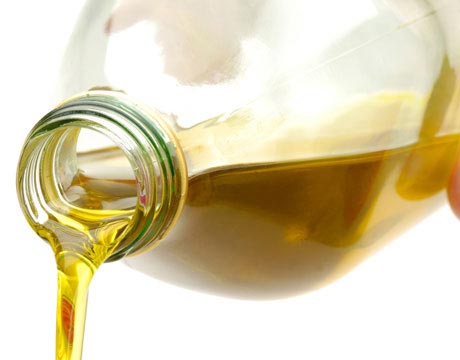
The European Commission has given the go-ahead for member states to sue China for counterfeit trademarks despite ongoing negotiations over a bilateral food and drink deal.
The move, reported by Euractiv.com, follows news that eight EU countries have joined forces to file a lawsuit against China over 25 counterfeit trademarks that are falsely marketing food as being of EU origin and which are protected in the EU.
The eight countries – Greece, Italy, Spain, France, Portugal, Germany, Hungary and Romania – are seeking to annul Chinese-registered trademarks for 'Greek feta' cheese, 'Spanish' olive oils and 'Italian' balsamic vinegar where the products have not been produced in their designated European areas.
The lawsuit comes as the EC and China negotiate a bilateral deal that aims to protect producers from unfair competition while at the same time helping to encourage demand for high-quality products, particularly among China's growing middle class.
As part of the deal, both China and the EC have agreed a draft list of 200 mutually recognised geographical indications – 100 from each side – which designate certain food products with a certified geographic origin to highlight quality and authenticity and allow premium price tags.
Geographical Indications are central to the EU's food quality schemes.
Greek feta, Spanish olive oil and Italian balsamic vinegar are among the geographical indications (GIs) currently listed in the EU-China agreement, which is expected to be signed later this year.
Under the negotiations these GIs would be protected in each territory against "imitations and usurpations", the EC said.
However, according to Euractiv.com, "Brussels has said it will not seek to remove existing counterfeit trademarks from the Chinese market under the future bilateral agreement".
Although Greece has said in legal documents that while China has agreed to recognise EU geographical indications, the country is refusing to cancel Chinese-registered trademarks of falsely labelled products purporting to be EU-produced.
It is for this reason that legal action was required otherwise "Chinese owners will have the right either to produce [products] domestically or to import homonymous counterfeit products from the whole of the world," Just-Food.com reported Greece as saying.
Speaking to Euractiv.com, an EC spokesperson said the EC had no objection to European GI producers taking legal action to cancel counterfeit trademarks in China "as part of a normal procedure under trademark law".
The spokesperson added: "The Commission is confident that the future agreement will bring significant benefits to European GI producers. Even where there are existing trademarks, European GIs can still be protected in China because China, like the EU, allows coexistence between an earlier trademark and a later GI."
The GIs chosen by the EC took into account GI market volume in China and the potential risk of counterfeiting, Euractiv.com reported.
Some of the European products listed with geographical indications include Champagne, Cognac, Parmigiano Reggiano, Roquefort and Scotch Whisky and includes 26 GIs from Italy, 25 from France, 12 from Spain, and six from Portugal and Greece. Meanwhile, Chinese products include Yantai Apple, Hengxian Jasmine Tea, Panjin Rice and Baise Mango.
Ten GIs from both sides are already protected under EU and Chinese legislation based on a decade of co-operation prior to the current negotiations.
The EC describes geographical indications as one of the great successes of European agriculture, with more than 3300 EU names registered and 1250 non-EU names protected within the EU.
EU GIs are worth €54.3bn and account for 15 per cent of total EU food and drinks exports.
©
SecuringIndustry.com
 | back to top
| back to top






